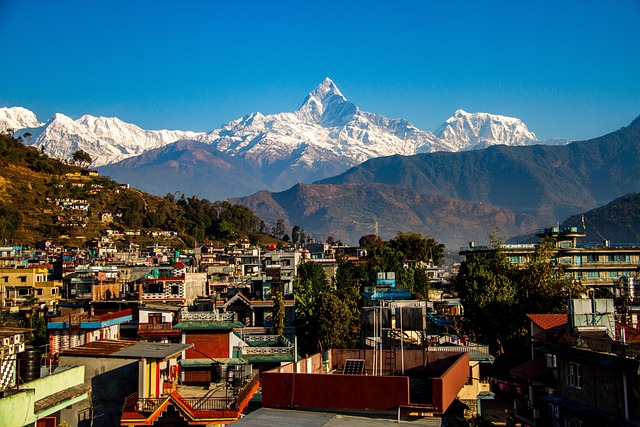Environmental Justice in Nepal: Origins, Struggles, and Prospects
This book brings together diverse perspectives on the environmental challenges facing Nepal today. It focuses on the intersection of environmental issues and social justice, providing insights into the struggles of marginalized communities, the impact of climate change, and the policies affecting the environment.
Through contributions from activists, scholars, and community leaders, the book highlights critical issues such as deforestation, water rights, and the vulnerability of indigenous peoples. It also discusses practical solutions and ways forward, emphasizing the role of community action and policy change.
The goal of this work is not just to inform, but to engage and build a network of individuals and organizations committed to addressing these urgent challenges.
What people are saying- reviews/ testimonials
→ insert from the book blurbs
→ eventually, add in from book reviews
This groundbreaking book delves into Nepal's environmental challenges, providing valuable frameworks and lessons for global scholars, policymakers, and practitioners. Offering insights into the complex issues surrounding environmental justice issues in Nepal, the book discusses potential solutions for achieving just and equitable outcomes from environmental conservation.”
Pema Gyamtsho, PhD, Director General, ICIMOD, Nepal
“The book uncovers the untold miseries of environmental inequity and injustice faced by the rural and urban poor in Nepal due to soil erosion, habitat destruction, deforestation, hazardous use of pesticides and chemicals as well as ill-conceived and implemented development projects. While the publication is Nepal focused, the lessons learned can be extremely valuable to other countries as well.”
Hon. Kaylan Shrestha, Former Senior Justice Nepal Supreme Court
“Here is a vital contribution to global Environment Justice (EJ) scholarship that takes seriously the axes of caste, ethnicity, gender, and internal colonialism in the making of land, livelihood, and resource struggles. In thinking critically across Nepal’s myriad political and liberation ecologies, this pathbreaking volume deepens our understanding of EJ both within and beyond the west.”
Malini Ranganathan, Associate Professor, American University, USA
“Environmental Justice in Nepal is a stunning and important contribution to global environmental justice scholarship. Grounded from the voices and standpoints of Nepalese activists and scholars, the collection not only addresses a wide range of topics (climate, land, health, conservation, development, land rights etc.), the volume collectively offers a new, unique and significant perspective on social dynamics, histories, and controversies of a vitally important place.”
Julie Sze, Professor, American Studies, UC Davis, USA
“This extraordinary volume features scholarship and activism that chart an inspiring course for environmental justice in Nepal. The contributors powerfully demonstrate how diverse Nepali communities boldly confront ecological and climate threats intertwined with patriarchy, environmental casteism, and internal colonialism to promote innovative pathways toward environmental quality and dignified livelihoods.”
David Naguib Pellow, Professor, Environmental Studies, UC Santa Barbara, USA
“We in the media used the acronym ‘EJ’ to mean ‘Environmental Journalism’. Now I realise that it also stands for ‘Environmental Justice’. This book is a must-read for us to understand that nature conservation and social justice are two sides of the same coin.”
Kunda Dixit, Author of Dateline Earth: Journalism As If the Planet Mattered
“Environmental Justice in Nepal builds a transdisciplinary lens on environmental justice from uniquely Nepali standpoints that centre subaltern knowledge and experience. The chapters feature invaluable case studies that collectively establish Nepal as a crucial site of scholarly innovation for thinking through today’s planetary environmental challenges. Indispensable reading for students, activists, planners and scholars.”
Katherine Rankin, Professor, Department of Geography and Program in Planning, University of Toronto, Canada
Download the Book: Get your free copy now and explore the issues that matter to you.
.
